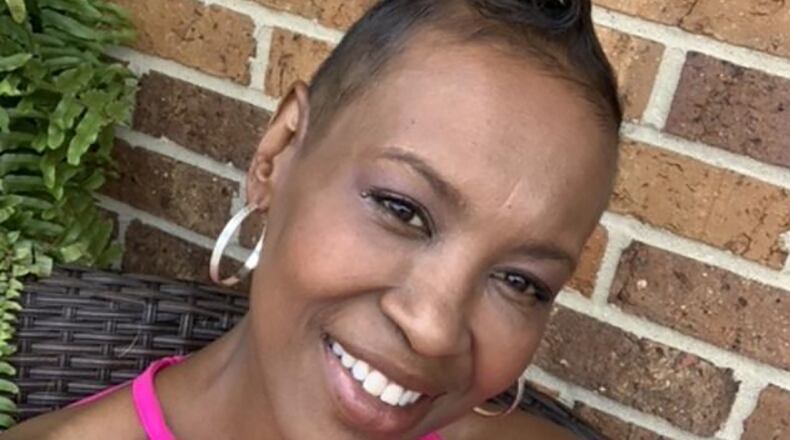“I had abdominal pain, weight gain, swelling and inflammation,” Long said. “I gained 12 pounds in a week with no explanation.”
Long went to her doctor who ordered tests. They all came back normal.
“I went on a business trip and had excruciating pain after eating dinner,” Long said. “I tried to sleep but the pain woke me up.”
Thinking it was perhaps kidney or gall stones, she opened her computer and started researching. When a hive popped up on her face, she thought she was having an allergic reaction to something.
“The itching was less by morning, but I still felt horrible,” Long said. “I ended up calling my gastric specialist and scheduled an appointment.”
Long drove home the next day, still in pain and exhausted. She went to her primary care doctor and sat on the exam table crying because the pain had become intense. Her doctor reassured her that they would figure out what was causing it.
“I was driving to a work meeting, and I looked in the rear-view mirror,” Long said. “I thought my eyes looked yellow.”
Long called her doctor who advised her to go immediately to an emergency room. Tests revealed stones and sludge blocking her bile duct and something else that looked like a large tumor.
“I had surgery to remove the mass,” Long said. “After I was in recovery, I got my diagnosis.”
Long had bile duct cancer, which affects only about 20,000 people in the United States annually. She was 47 years old.
“I was naïve about the severity of my cancer,” Long admitted. “I thought if I had surgery to cut it out, that would fix it.”
But the surgery itself was delicate and Long was referred to a local specialist. Meanwhile Long’s family wanted her to focus on fighting her cancer, so they all advised her to stop researching.
“Everything you read about this type of cancer is doom and gloom,” Long said. “I had the support of my family, and everyone insisted I get second and third opinions.”
But doctor after doctor said the location of her tumor made surgery difficult, if not impossible.
“I thought there was no hope for me,” Long said.
Long’s sister, Angela, works at Duke Medical Center in North Carolina and used all her connections to help get her sister treatment immediately. Long learned going to Duke for care was her quickest and best option.
On January 26, 2016, Long underwent surgery at Duke. 50% of her liver and 13 lymph nodes were removed. She was referred for chemotherapy and radiation after two of the lymph nodes came cancerous.
Long, far from home with few resources to help pay for her mounting bills, relied on her sister for help. Her husband, Paul, travelled to North Carolina with another family member to help Long in her recovery, which took eight full weeks.
“I was up and walking within a week,” Long said. “They released me and seemed very pleased with the results.”
But it was still early in Long’s cancer journey. She began radiation treatments immediately and then returned home to Ohio for chemotherapy.
“Paul ended up being diagnosed with a rare form of kidney cancer in 2018.” Long said.
Long’s cancer reoccurred at the same time her husband’s was discovered. The couple ended up going through chemotherapy together in North Carolina.
“After three months, the chemo stopped working for me,” Long said. “I was referred to an oncologist in Boston who was holding a clinical trial based on my specific mutation.”
Though that trial appeared to be the miracle for which Long had hoped, her travel expenses increased, with trips to Boston every other month. The goal was to keep her cancer from growing and spreading. And it worked.
“In 2020, my husband’s cancer came back, and he passed away in September,” Long said of her husband’s death that year.
A month after he passed, Long’s cancer symptoms returned, and she started a new trial, designed to target her type of tumor in March of 2021.
“With the second trial there was some shrinkage of the tumor and now I’m stable again,” Long said.
Long now splits her time between her home in Clayton and Boston. Early in her treatments, she was told about a foundation that might be able to help pay the expenses related to her care and travel.
Because bile duct cancer is rare, there aren’t many programs established to help patients diagnosed with it. But the Lazarex Cancer Foundation offered lodging and transportation assistance when she started her second clinical trial.
“I’m the only parent for my son now,” Long said. “By God’s grace I’m still here. I have had to fight to get answers, always advocating for my own health and life. It’s why I’m here today.”
About the Author








